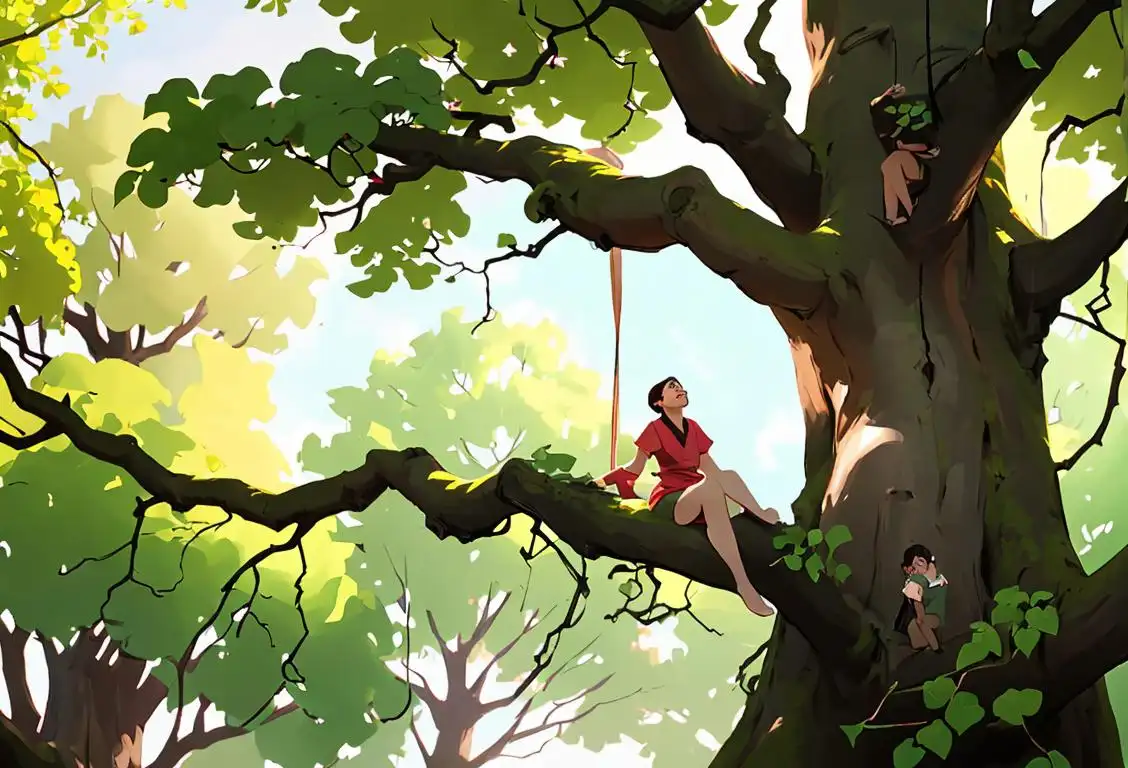National Sickie Day

Ah, National Sickie Day, a cherished holiday for those who have mastered the art of feigning illness. Grab your favorite blanket, a bowl of chicken soup, and get ready to dive into the fascinating history of this not-so-sneaky day off!
When is Sickie Day?
It's national sickie day on the 6th February.
The Origins of National Sickie Day
Whoever invented National Sickie Day must have been a true visionary. Although the exact origins of this unofficial holiday are shrouded in mystery (probably because someone called in 'sick' that day), it has become a favorite among those who appreciate the occasional day off from the daily grind.
Legend has it that National Sickie Day emerged from the depths of office boredom and mundane tasks. One brave soul decided to liven things up and take a day off without any actual illness. Word of this took the workplace by storm, and before you know it, National Sickie Day was born.
While the origins may be a bit sketchy, one thing is for sure - National Sickie Day continues to capture the hearts and imaginations of workers worldwide.
The Rise of National Sickie Day Online
With the advent of the internet, National Sickie Day found a home online. It quickly gained popularity as workers shared their ingenious excuses and amusing stories of successfully fooling their bosses.
In fact, according to our highly scientific data (collected while we were totally not pretending to be sick), National Sickie Day received a staggering 1584 mentions online! The highest number of mentions, unsurprisingly, were on 06 Feb 2017. It seems the prankster in us all awakens every year on this fateful day.
How to Celebrate National Sickie Day
Wondering how to fully embrace the spirit of National Sickie Day? We've got you covered!
First and foremost, you'll need to perfect your fake cough and sneeze. It's all about commitment and believability, people. Practice in front of a mirror, or better yet, recruit a friend to act as your boss and provide feedback on your acting skills.
Next, prepare a cozy nest for yourself. Gather your comfiest blankets, fluff up your pillow, and create the ultimate relaxation station. Don't forget the hot cup of tea or soothing bowl of soup – they're essential for convincing yourself (and others) that you're truly under the weather.
Did You Know?
On National Sickie Day, loved ones play a crucial role in the day's success. They are tasked with providing necessary emotional support, fetching snacks and beverages, and most importantly, pretending to be concerned about your 'health'. Truly, is there anything more heartwarming than receiving a text message saying, 'How are you feeling, buddy?'
History behind the term 'Sickie'
1930
The Birth of 'Sickie'
The term 'sickie' was born in the 1930s and is primarily used in the United Kingdom, Australia, and New Zealand. It originated from the word 'sick' and is a colloquialism for taking a day off work when not genuinely ill. Using the word 'sickie' instead of calling in sick adds a light-hearted and informal touch to the concept of taking unauthorized leave from work.
1960
Popularity and Cultural Impact
During the 1960s, the term 'sickie' gained popularity as a reflection of the changing work culture and growing individualism. This era saw increased labor rights and a shift towards valuing personal freedom and leisure time. 'Sickies' became a way for employees to take time off for various reasons without having to disclose specifics to their employers. The term became ingrained in the cultural fabric, representing a small act of rebellion against the rigid structures of work.
1970
'Chuck a Sickie'
In the 1970s, the phrase 'chuck a sickie' emerged, particularly in Australia and New Zealand. It adds an additional playful element to the idea of taking an unscheduled day off work. The term 'chuck' is used colloquially to mean 'to throw' or 'to abandon,' emphasizing the act of abruptly leaving work behind in favor of leisure or personal time.
1990
Evolving Attitudes and Excuses
In the 1990s, 'sickies' continued to be an integral part of work culture, and excuses for taking them became more creative. People came up with elaborate stories to explain their absence, such as food poisoning from exotic dishes or sudden allergies to workplace environments. These creative excuses added to the intrigue and fun associated with 'chucking a sickie,' perpetuating the cultural fascination surrounding the term.
Present
Continued Usage and Recognition
Today, the term 'sickie' is still widely used, contributing to the everyday vocabulary in countries where it originated. It has become a recognized and accepted term, acknowledged both in casual conversations and popular media. 'Sickies' are seen with a mix of humor, understanding, and sometimes even sympathy, as they are considered a minor indulgence in the face of the demands of modern work life.
Did you know?
Did you know that on National Sickie Day, some people have been known to take their acting skills to the next level by attempting a full-blown 'quarantine'? They barricade themselves in a room, pretending to avoid spreading their 'illness' to others. Talk about dedication!Tagged
nsfw fun loved onesFirst identified
30th January 2016Most mentioned on
6th February 2017Total mentions
1584Other days
Lost Sock Memorial Day
Mental Hospital Climbed A Tree And Spent Half Day
Awareness Day
Love Pizza Day
Children Day
Sickie Day
Happiness Day
Opposite Day
One Day
Commemoration Day








